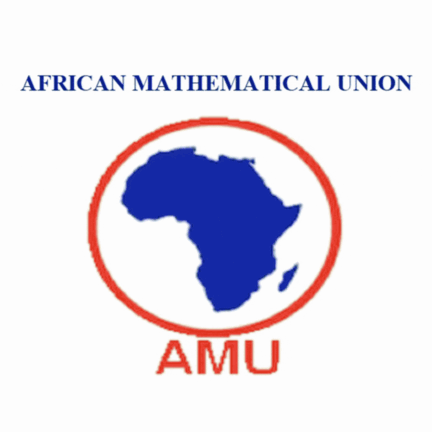Message from the ChairDear Mathematicians from Africa, I hope this greeting finds you and your family in good health wherever you are in our motherland Africa. I would have loved to send you this message in an African language, such as Swahili, but I am obligated to deliver it in a colonial language, therefore expect some grammar errors because I am an Eton from Elig-Mfomo. Dear African mathematicians, our motherland was once a temple of mathematics, attracting mathematicians from all over the world, such as Hypatia, Diophantus, Pandrosion, Pappus, Euclid, Thales of Miletus, Pythagoras, and many more. “Africa is home to the world’s earliest known use of measuring and calculation, confirming the continent as the birthplace of both basic and advanced mathematics ... The oldest mathematical instrument is the Lebombo bone, a baboon fibula used as a measuring device and so named for its location of discovery in the Lebombo mountains of Swaziland ... The world’s oldest evidence of advanced mathematics was also a baboon fibula that was discovered in the present-day Democratic Republic of Congo and dates to at least 20,000 BC …. The oldest known evidence of the ancient counting board game, Gebet’a or “Mancala” as it is more popularly known, comes from Yeha (700 BC) in Ethiopia, it was also used in Central Africa … It is impossible to quantify how much the slave trade impacted the reputation of African mathematics, but we are slowly regaining a better perspective”. More information about this history can be found in the following article https://www.addisherald.com/mathematics-in-africa-has-been-written-out-of-history-books-its-time-we-reminded-the-world-of-its-rich-past/ A fractal is a pattern that repeats at various scales. It's perfect for simulating nature: a tree is a branch of a branch of a branch, mountains are peaks within peaks, clouds are puffs within puffs, and so on. Fractals aren't only for computer scientists: Africans have been utilizing them for generations to make textiles, sculptures, architecture, hairstyles, and more. For information, please read the following article http://www.math.buffalo.edu/mad/special/eglash.african.fractals.html. What happened that our children now must leave Africa to study mathematics abroad? The purpose of this message is not to debate what happened, but to invite you to the African Conference of Mathematics and Application, which will be held in Kigali, Rwanda, from November 21 to 24, 2023, and is organized by the African Mathematical Union, commission of Research and Innovation (https://acma2023.sciencesconf.org/). Many will however ask that why this particular conference could find solution to African problem, the direct answer will be in the book of 1 Kings. “1 KINGS 18:44, And it came to pass after the seventh time, that he said, Behold, a cloud ariseth out of the sea, as tiny as a man's hand. And he said, go up, tell Ahab, make ready thy chariot, and get thee down, so that the rain does not stop thee”. As a result, I ask us to travel to Kigali in the hope that a rain of revolution will fall across Africa from that little cloud. We should not wait for a helping hand from heaven, Europe, America, or Asia, because we should all rely on us to solve African problems using mathematical formulas. It is critical that we remember the Tower of Babel ("https://en.wikipedia.org/wiki/Tower_of_Babel"). Let us go in November with precise goals: 1) We will share our most recent findings in several areas of mathematics and applications. 2) To discuss key objectives such as:
3) To ask some important questions including:
I am aware of the financial difficulties that we African mathematicians confront. We will request financial assistance from African nations beginning with South Africa and progressing via Kenya, Rwanda, Egypt, Morocco, and Tunisia. Let us stand as one person to restore the former glory of our motherland Africa. We are looking forward to meeting you in Kigali.
Best regards. Prof. Dr. Abdon Atangana Highly cited mathematician Fellow of the World Academy of Science Chair of African Mathematical Union, Commission of Research and Innovation University of the Free State, Bloemfontein. South Africa |


